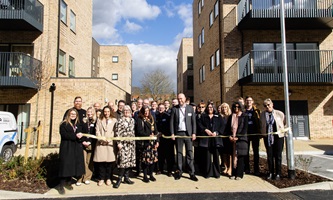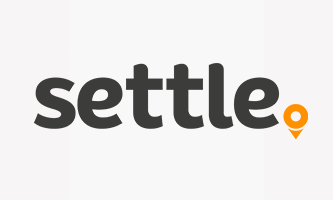We should be striving for representation, not just diversity
Anita Khan, executive director of customer services

The actor Riz Ahmed has an interesting take on diversity – he says he hates the word. His reasoning is that he is much more interested in representation, as this ‘stretches culture’ and gives us ‘more space to be ourselves‘.
As we digest the results of the latest Inside Housing Diversity Survey, this is the ideal time to reflect on progress to date and where next.
Ensuring diversity in our organisations in terms of protected characteristics is an important first step in creating better places to work and places to live. However, it is only a first step.
To pick up Riz’s theme, we need to ensure the range of views in our communities and workforces are represented in what we do and how we do things. It can’t just be a case of saying ‘we have a female CEO and someone who is BAME on our board, and that is job done’.
For instance, does having that female CEO mean more female employees feel fulfilled at work and see opportunities open to them? Or is it pretty much the status quo, with greater opportunity for men? If it is the latter then that female CEO is not symptomatic of a change of culture – she serves as an exception.
How can housing providers take the step from diversity to representation?
At settle, we have a mission to help our customers to stay in their homes comfortably so they can live the life they choose.
Recently we have begun exploring what we mean by ‘comfortable’, and what this might mean for customers and colleagues. The following is where we have reached:
‘Imagine if ‘comfortable’ inspired a cultural philosophy of ‘strengthening people’? i.e. settle is a place where an individual is recognised (seen and known) for who they are, the value they bring today, their potential for development and is rewarded accordingly.’
I am not saying this is or we are perfect, however, as I mentioned earlier, it is a start on the journey to ensuring we empower our colleagues to represent their views and those of our customers.
We are taking a number of steps to ensure we have an inclusive mindset as a default across the organisation and in everything we do.
For instance, we have no diversity and inclusion officer at settle – this is a shared responsibility for us all.
Also, we are very conscious of the context in which we operate. For some housing providers, issues of diverse ethnicities will be a key consideration. For others – such as settle – it is more about issues of poverty, mental health, and affordability.
As a result, the actions we are taking with colleagues and in our communities include projects such as Foundations 4 Work (a partnership with a local charity to help prepare tenants for and to secure sustainable employment); mental health first aiders (the presence in our male-dominated repairs and maintenance teams has been particularly important); and domestic abuse prevention champions (has helped customers as well as colleagues).
There is more we can do as a sector.
I am very proud to have been appointed a member of the National Housing Federation’s steering group on Diversity, Equality and Inclusion in Housing.
I am clear about the need to work with the National Housing Federation to ensure housing associations are at the heart of effective representation on behalf of our colleagues and communities.
Measuring progress in this area can be difficult as it is ultimately determined by how people feel.
At settle, we have evolved our approach to now using perception surveys to determine an overall trust score to understand how our customers feel about our performance in meeting their needs. The focus here is more about how we do things as opposed to what we do.
The Inside Housing Diversity Survey also plays an important role in improving our sector, but perhaps it too can evolve to become the Inside Housing Representation Survey?
Article first published in Inside Housing.


